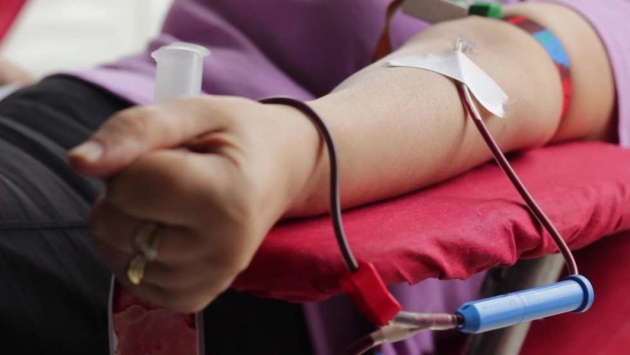Lack Of Blood In Gombe Hospitals Takes Toll On Pregnant Women

ltungo and Biliri, two major towns in Gombe State recently experienced some of the types of incidents that maternal and newborn health activists decry in Nigeria.
The first was at Kaltungo General Hospital mid-June, and Madam Rose, who witnessed the pathetic incident put it this way: “All she needed to survive was a few pints of blood; the doctor wanted blood to save her life, but there was no blood available in the hospital’s blood bank. So she was left on the delivery couch just as helpless as the doctor who wanted to help but couldn’t.”
Her name was Linda; she was young, nine months pregnant and in labour. For her, one thing had led to another on the fateful day. The chain of events started with her being rushed to Kaltungo General Hospital. However, it was not because she had gone into labour, but because she had suffered a snake bite. She was successfully treated of snake bite, but she now went into labour, and she was delivered of a baby boy.
Unfortunately, she bled; then the bleeding didn’t stop, and it became rather profuse. At some point it became clear that she needed a blood transfusion because she had lost too much blood. The hospital has a blood bank, but it was not functional; there was no blood there. A few hours after giving birth, Linda breathed her last. The cause of death was cardiac arrest following excessive bleeding, medically known as postpartum haemorrhage (PPH).
“Although we can say it was God’s plan, I am assuring you that she would have survived if the hospital had blood to give her,” Madam Rose said. Confirming that Linda had died as a result of PPH, Yunana Baraya, chief nursing officer of the hospital, said the death could have been averted if blood had been available in the blood bank.
In Biliri General Hospital, another woman also put to bed, but lost a lot of blood in the process. She required an urgent blood transfusion, but there was also none available. Unlike Linda in Kaltungo, this was not a totally helpless case if her husband would give some of his own blood. According to one of the hospital attendants, who asked for anonymity, the man shocked the entire hospital by refusing to donate blood. He said his faith did not allow him to do so. According to our source, all efforts to make him understand and cooperate were futile. His wife died while the drama was unfolding.
According to experts, the two incidents are characteristic of jaundiced maternal care in Nigeria. There is an abysmally low supply of blood to address blood loss through PPH, road accidents and health conditions that require blood or blood products. PPH, which is not an uncommon feature in child birth worldwide, is however, the leading cause of pregnancy-related deaths in Nigeria. This is mostly because there is usually shortage of blood either because blood banks are not functional or because people would not donate blood, or the required group is not available.
Speaking during a media roundtable to commemorate the 2017 World Blood Donor Day mid-June in Abuja, Dr Oluwatoyin Smith, coordinator of the National Blood Transfusion Service (NBTS), said blood availability in Nigeria per head is about the lowest in the world because many people refuse to donate.
Read more at http://leadership.ng/2017/07/22/lack-blood-gombe-hospitals-takes-toll-pr...












